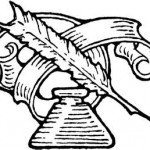Increasing Your Brain Power
 Students in the first-year legal writing courses are right now handing in their first full length memos. Learning this new memo writing skill is usually a moment of some anxiety for students, as the analysis, form, and structure of a legal memo is quite different from other types of writing.
Students in the first-year legal writing courses are right now handing in their first full length memos. Learning this new memo writing skill is usually a moment of some anxiety for students, as the analysis, form, and structure of a legal memo is quite different from other types of writing.
The most important word in the previous paragraph is the word skill. Legal writing is a skill, and as a skill, it can be developed through hours of deep practice, according to The Talent Code by Daniel Coyle.
The Talent Code starts with the question of how and why some environments, whether they are formal coaching programs or even informal family dynamics, produce people with exceptional skill sets.


